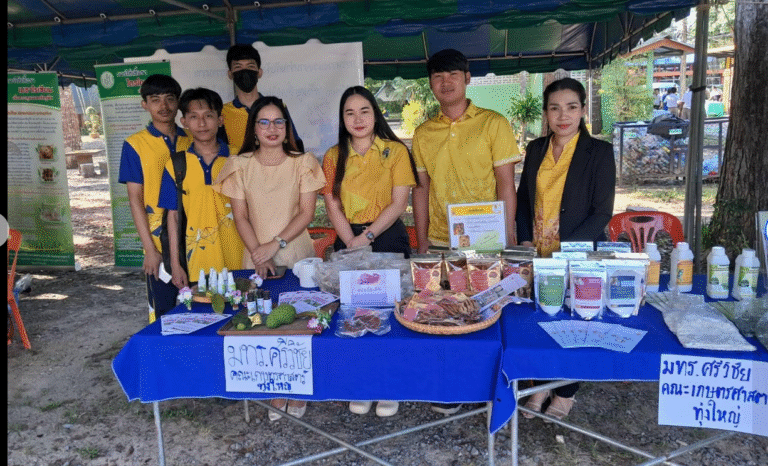Reporters: Asst.Prof.Dr. Prapot Maliwan
Assoc.Prof.Dr. Pornsil Seephueak
Asst.Prof.Dr. Nion Chirapongsathonkul
Asst.Prof.Dr. Worawitoo Meesook
Evidence Date: during 2024 Jan-Dec
Related Indicators: 15.3.5
Details:
The Faculty of Science and Technology at Rajamangala University of Technology Srivijaya organized a National Moth Week activity on July 23 at Sirinthon Botanical Garden, Thung Song District, Nakhon Si Thammarat Province. The event was part of an international citizen science initiative that encourages people to observe and record moth diversity. A team of university lecturers, students, and local participants joined the activity to explore nocturnal biodiversity within the botanical garden. Light traps and night walks were used to attract and observe various moth species. Each specimen was carefully photographed and later identified using field guides and online resources. Observations were uploaded to the iNaturalist application, contributing to a global database of moth diversity. This not only allowed participants to share their findings but also helped scientists worldwide better understand moth distribution patterns.
The activity highlighted the ecological importance of moths, which are often overlooked compared to butterflies. Moths play crucial roles in ecosystems as pollinators, prey for birds and bats, and indicators of environmental health. Many flowering plants rely on moths for pollination, particularly those that bloom at night. By studying the diversity and abundance of moths, researchers can assess the health of local habitats. During the event, participants learned how light pollution, pesticide use, and habitat loss threaten moth populations. Educational discussions emphasized how simple actions—like reducing outdoor lighting or planting native plants—can help conserve moths. Students and local residents gained hands-on experience in scientific observation and data collection, making the event both educational and inspiring.
This activity also strengthened cooperation between the university and the local community. Residents of Thung Song joined the night survey, gaining appreciation for the hidden diversity that thrives after sunset. The event encouraged them to become citizen scientists who can continue observing moths in their own neighborhoods. Rajamangala University of Technology Srivijaya emphasized that biodiversity conservation is most effective when communities are actively involved. The success of the National Moth Week activity demonstrated how education, technology, and community participation can come together for sustainable ecological learning. By engaging youth and adults alike, the project promoted awareness of the role of moths in maintaining ecological balance. Ultimately, this initiative showcased how local actions in Thung Song can contribute to global biodiversity knowledge and inspire ongoing conservation efforts.
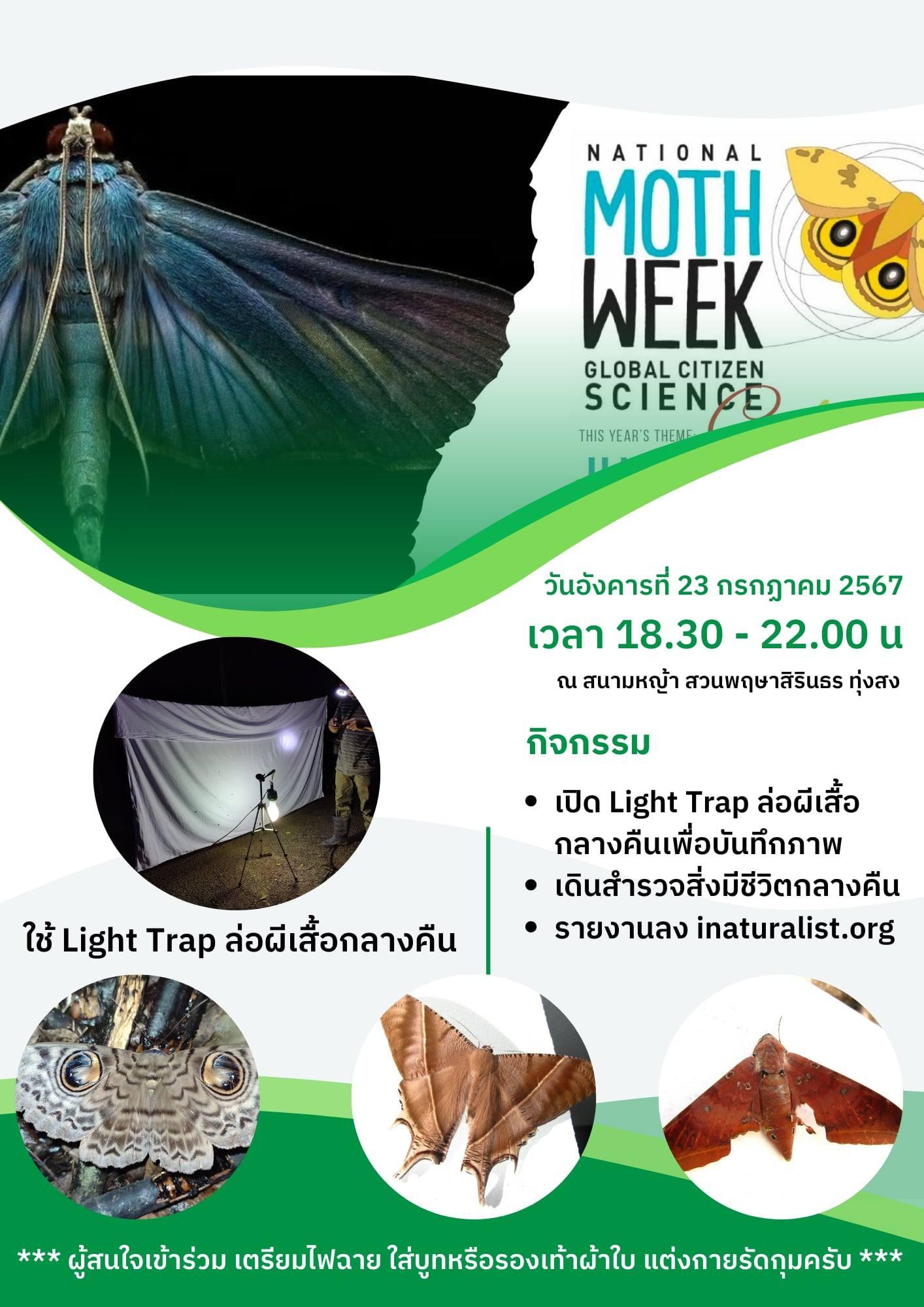
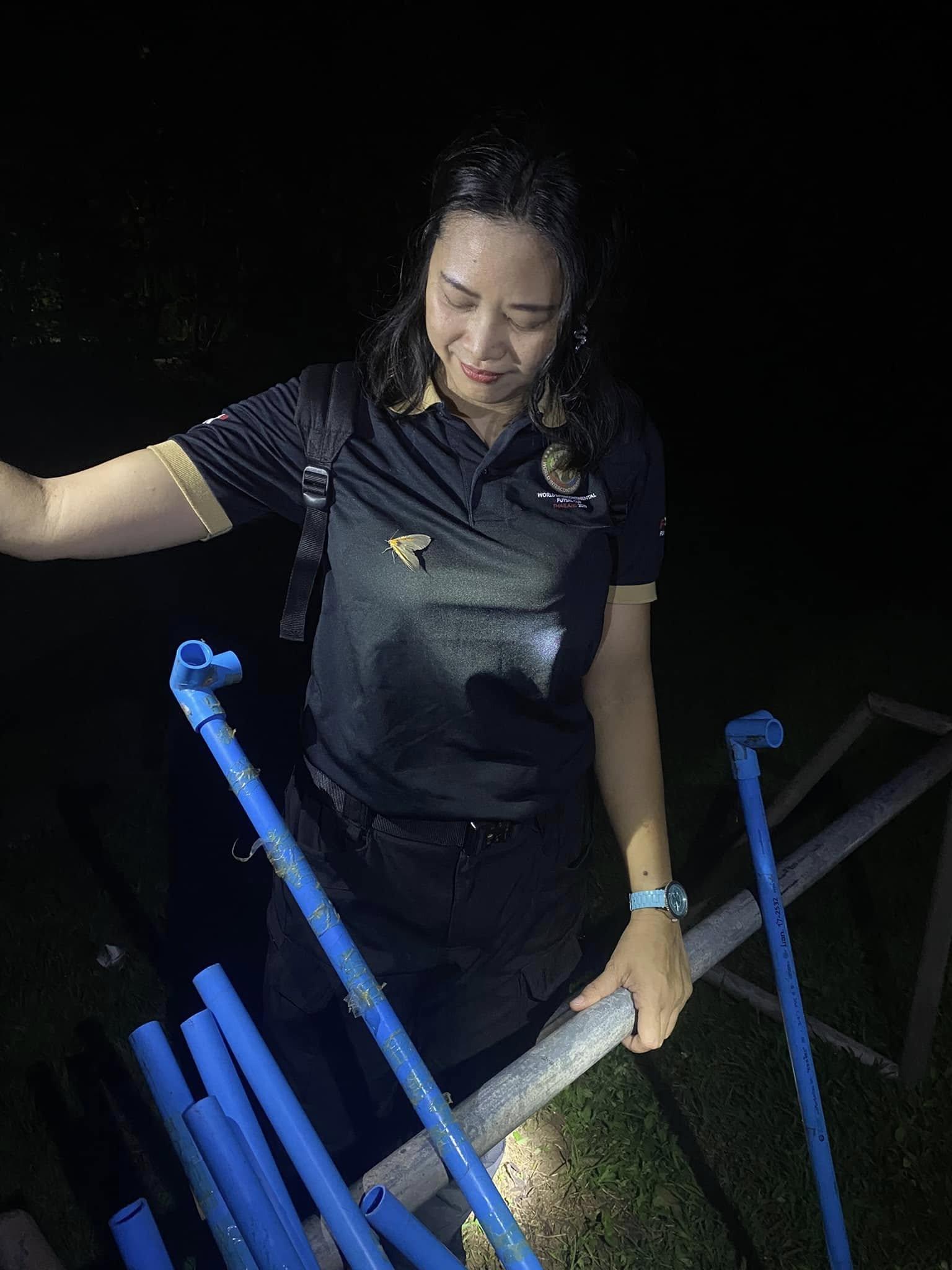
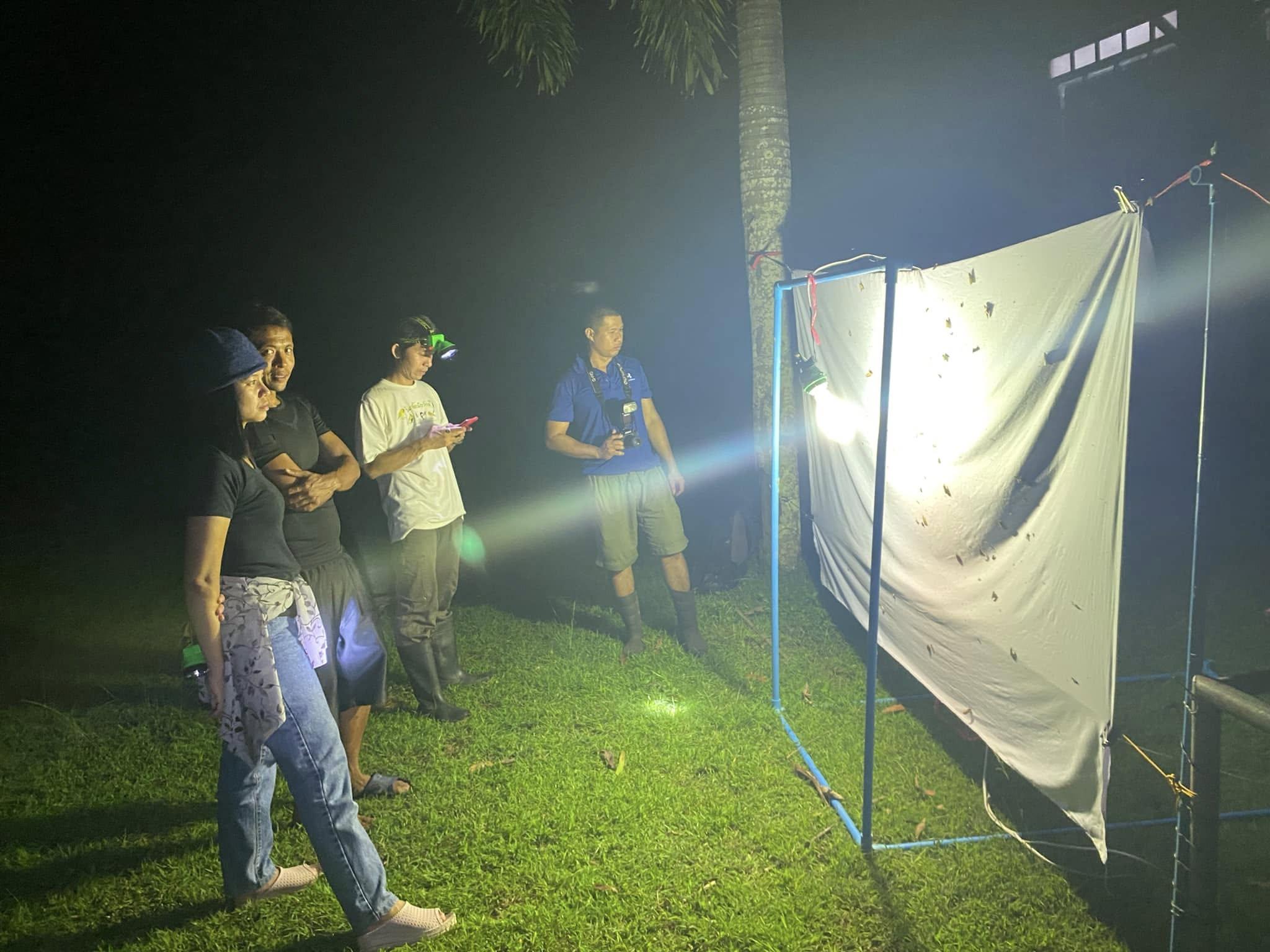
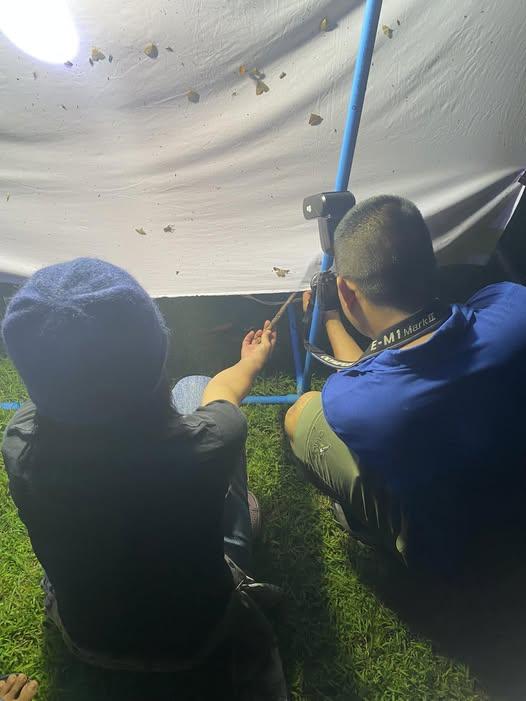
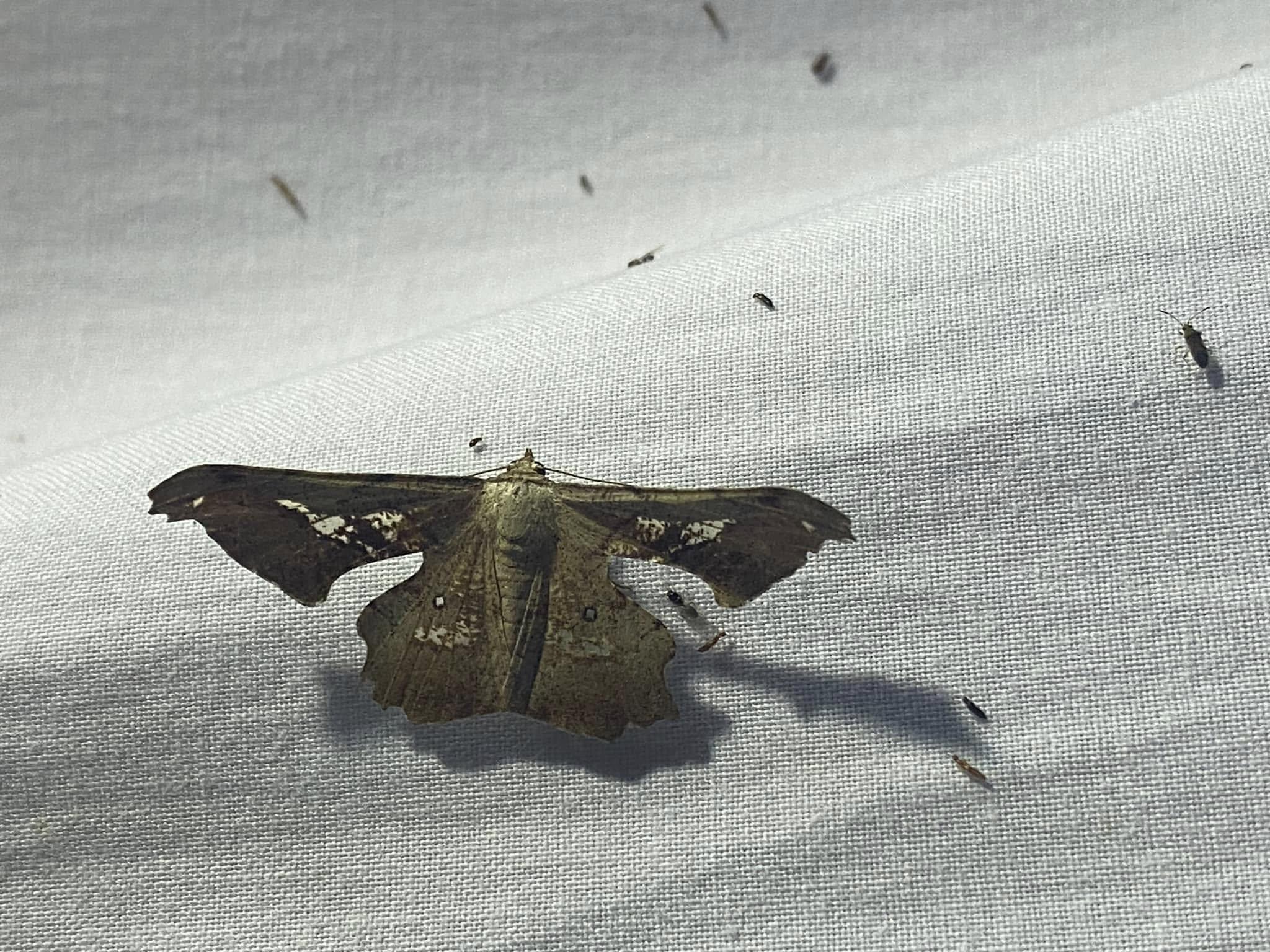
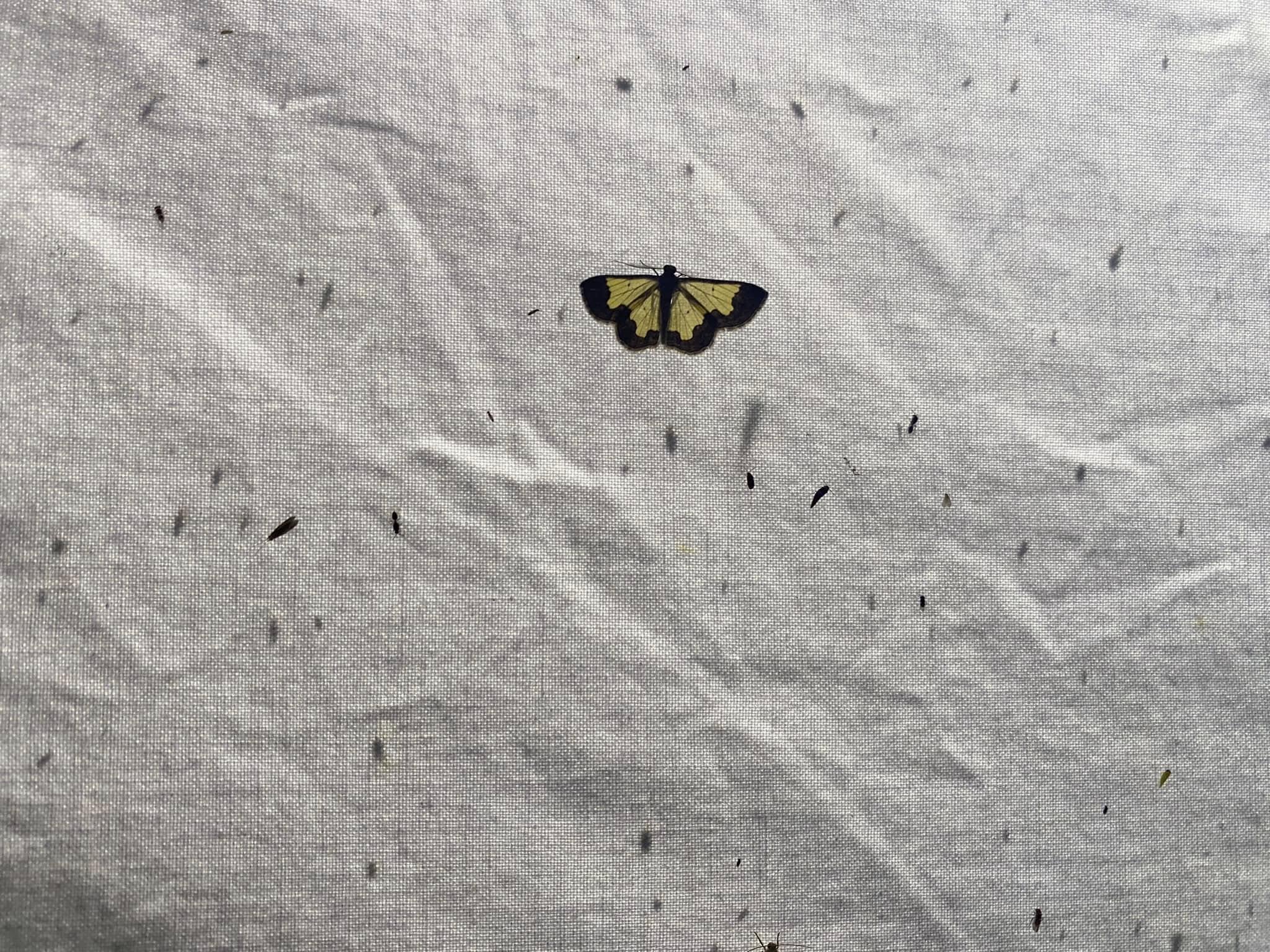
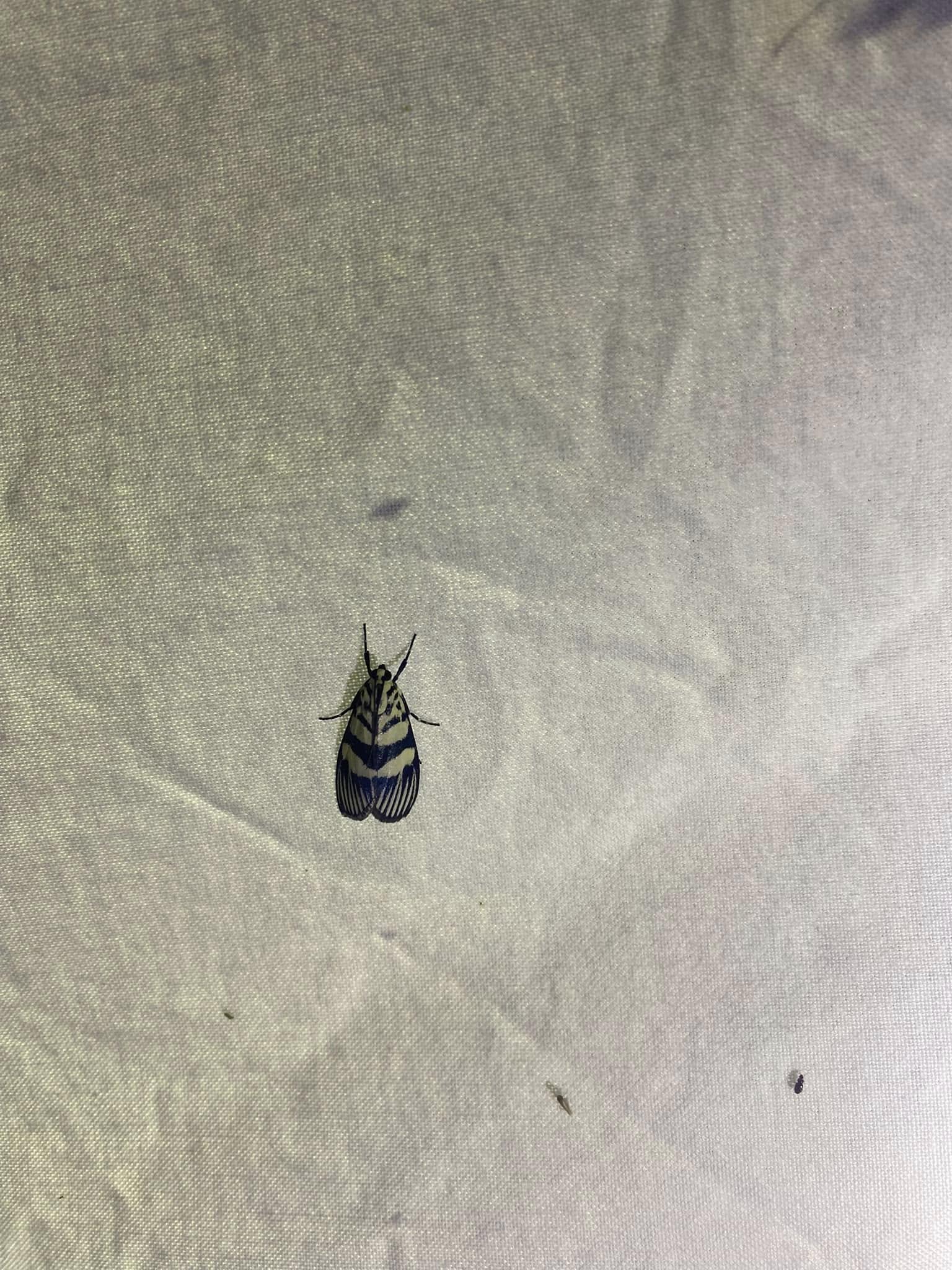
Related Links:




